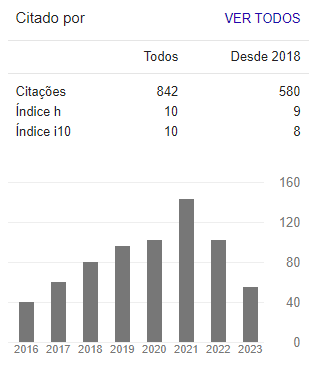Anacronismo e discurso da solidariedade humana: Borges em (sobre) Poema conjetural
DOI:
https://doi.org/10.23925/1983-4373.2017i19p229-252Palavras-chave:
Literatura moderna, Literatura argentina, Literatura comparadaResumo
Em 4 de julho de 1943, Jorge Luis Borges publica Poema conjetural, texto que segue a consciência de Francisco Narciso de Laprida, personagem histórico da independência argentina, no momento de sua morte. O poema contém uma crítica política que, no entanto, está instalada nas sutilezas da simetria de datas (o golpe militar de 1943 deu-se em 4 de junho) e do uso de um anacronismo na conjectura de Laprida, o termo sudamericano. O presente artigo observa como Borges retomou, em conferência e entrevistas, seu Poema conjetural para agregar comentários que destacam o anacronismo e a crítica política nele sugerida. Defendemos a ideia de que estes textos envelopantes revelam o desejo do autor de assinalar em seu poema a presença de um pathos, um discurso da solidariedade humana direcionada ao sul-americano. É na presença da ambivalência do discurso em (sobre) Poema conjetural que o anacronismo poema histórico/poema contemporâneo alcança potência máxima.







 Este obra está licenciada com uma Licença
Este obra está licenciada com uma Licença 